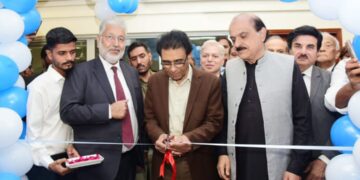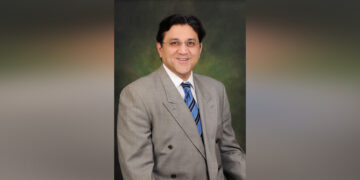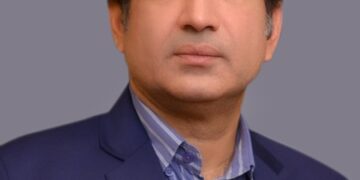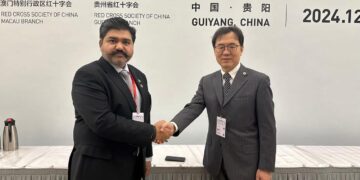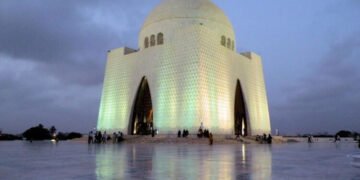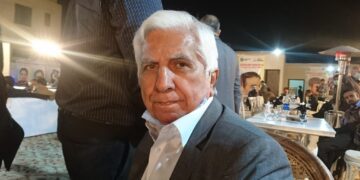Karachi: The Russian Center for Science and Culture in Pakistan, in collaboration with the Federal Urdu University. A special event commemorating the anniversary of the end of the Second World War in Europe. Esteemed students, faculty members, and students of the Department of International Relations, FUUAST, attended the event.


The event commenced with a screening of the documentary film “Allies” from the series “The Unknown War,” showcasing the collaborative efforts of the USSR and USA during World War II. Following the screening, Mr. Andrey Fedorov, the Consul General of Russia, delivered an insightful speech on the outcomes of the Second World War and the formation of international institutions. He shed light on Russia’s role in the war and its contributions to the establishment of global institutions aimed at maintaining peace and stability.


During the interactive session, students and faculty members actively engaged with Mr. Fedorov, posing questions on Russia’s role in World War II and its significance in shaping the post-war international order. Participants showed particular interest in understanding Russia’s perspective on key historical events and its stance on contemporary global issues. The discussion also touched upon the formation of international institutions such as the United Nations and the role they play in addressing modern-day challenges.


Notably, students and faculty members from the Department of International Relations, FUUAST, played an integral role in the event. They actively participated in the discussion session and contributed insightful questions, demonstrating a keen interest in understanding Russia’s historical and contemporary role in international affairs. Their engagement added depth and perspective to the dialogue, enriching the overall experience of the event.
Conclusion:
The commemorative event marking the end of the Second World War served as a platform for meaningful dialogue and reflection. It provided attendees with an opportunity to delve into the complexities of historical events and their enduring implications for global politics. The active participation of students and faculty members from FUUAST, particularly from the Department of International Relations, underscored the university’s commitment to fostering academic inquiry and promoting cross-cultural understanding



